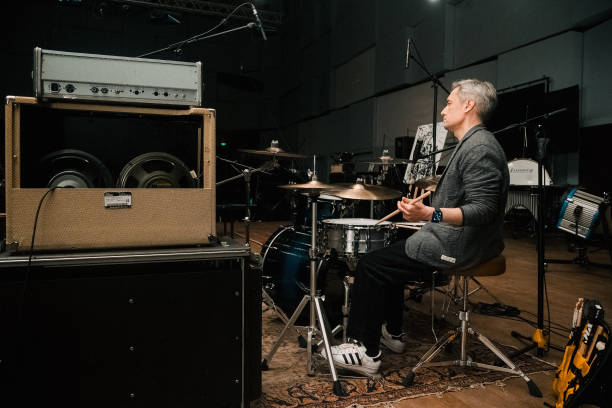Drumming is an art that requires rhythm, timing, and coordination. Many Famous Drummers Who Started as Other Musicians, shined in all the instruments that they learnt. These musicians often bring a unique perspective to drumming, incorporating elements from their previous instruments to create distinct styles.
In this article, we’ll explore how some Famous Drummers Who Started as Other Musicians, how their musical backgrounds influenced their drumming, and what we can learn from their journeys.
The Influence of Other Instruments on Drumming
Learning multiple instruments helps musicians develop a well-rounded understanding of music. Drummers who started on other instruments often have enhanced melodic awareness, strong compositional skills, and a unique sense of rhythm. Some key benefits include:
- Improved Musicality – Exposure to melody and harmony can help drummers become more versatile musicians.
- Better Sense of Timing – Playing other instruments, such as guitar or piano, strengthens rhythm and timing skills.
- Enhanced Creativity – Musicians who transition to drums often approach the instrument in innovative ways, bringing new techniques and influences.
Let’s look at some Famous Drummers Who Started as Other Musicians.
1. Phil Collins (Started as a Child Actor & Pianist)
Before becoming one of the most iconic drummers and vocalists in rock history, Phil Collins was a child actor and pianist. He appeared in theatrical productions and even played the Artful Dodger in Oliver! before transitioning to music. Collins initially studied piano but later developed an interest in drums, influenced by jazz greats like Buddy Rich and Ringo Starr. His background as a multi-instrumentalist contributed to his ability to write complex, emotive drum parts and later transition seamlessly into a lead vocal role while playing drums.
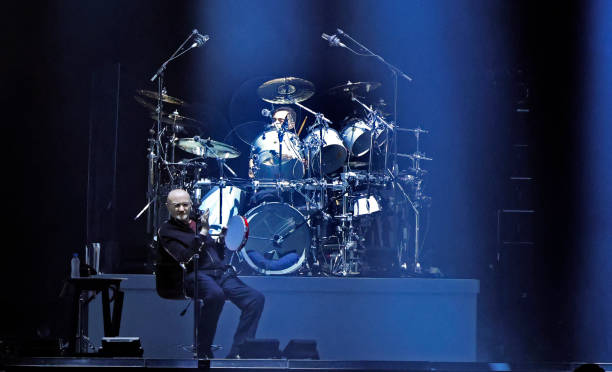
How His Background Shaped His Drumming:
- His early piano training helped him compose sophisticated drum patterns.
- His theatrical experience gave him a strong sense of rhythm and performance.
- His ability to sing while drumming made him a rare and unique performer.
2. Dave Grohl (Started as a Guitarist)
Before joining Nirvana as a drummer, Dave Grohl was a guitarist. He played in several bands as a teenager and admired punk rock guitarists before switching to drums. When he joined Nirvana, his heavy-handed, energetic drumming became a defining element of the band’s sound. After Nirvana, he returned to guitar and vocals, founding Foo Fighters and proving his versatility as a musician.
How His Background Shaped His Drumming:
- His guitar-playing experience gave him an instinct for song structure and dynamics.
- He brought an aggressive, rhythmic approach to drumming, inspired by punk and rock music.
- His ability to compose full songs as a guitarist helped shape Nirvana’s and Foo Fighters’ sounds.
3. Roger Taylor (Started as a Guitarist)
Queen’s Roger Taylor initially played guitar before transitioning to drums. As a teenager, he played in local bands as a guitarist but switched when he realized his natural affinity for rhythm. His drumming style, characterized by powerful grooves and intricate fills, played a crucial role in Queen’s dynamic sound.
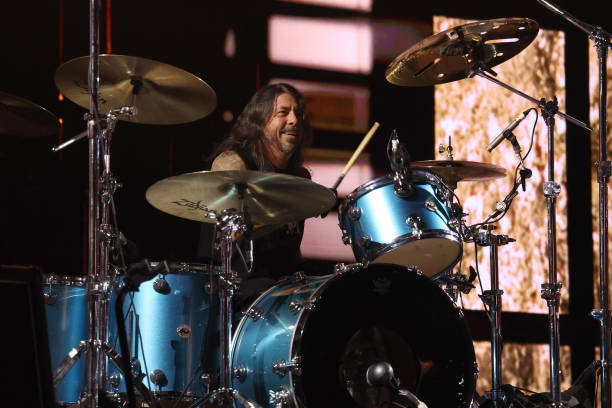
How His Background Shaped His Drumming:
- His knowledge of chords and melody helped him complement Queen’s complex arrangements.
- His experience with string instruments influenced his creative approach to drum fills.
- His songwriting skills made him an essential contributor to Queen’s success.
4. Stewart Copeland (Started as a Pianist & Bassist)
Stewart Copeland, the drummer of The Police, originally played piano and bass. His musical upbringing, combined with his love for world music, influenced his intricate, syncopated drumming style. He developed a unique approach, blending reggae, punk, and jazz influences to create one of the most distinctive drumming styles in rock.
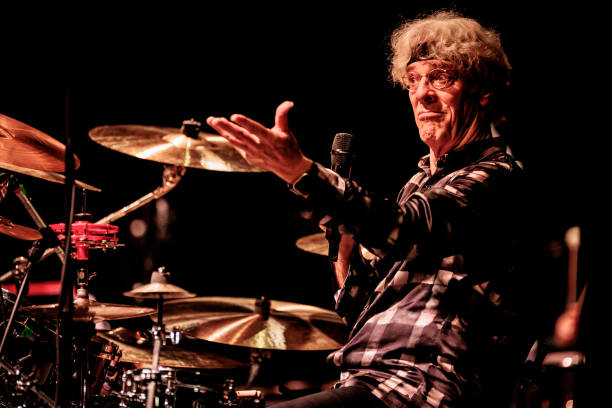
How His Background Shaped His Drumming:
- His piano skills enhanced his understanding of rhythm and melody.
- His bass-playing experience helped him lock in with basslines more effectively.
- His exposure to world music allowed him to incorporate diverse rhythmic elements into his drumming.
5. Travis Barker (Started as a Trumpet Player)
Before becoming one of the most influential drummers in punk rock, Travis Barker of Blink-182 started out playing the trumpet. He eventually switched to drums and brought his sharp, precise playing to punk and hip-hop genres. His background as a horn player gave him a deep appreciation for musical timing and phrasing, which he applies to his fast, intricate drumming style.
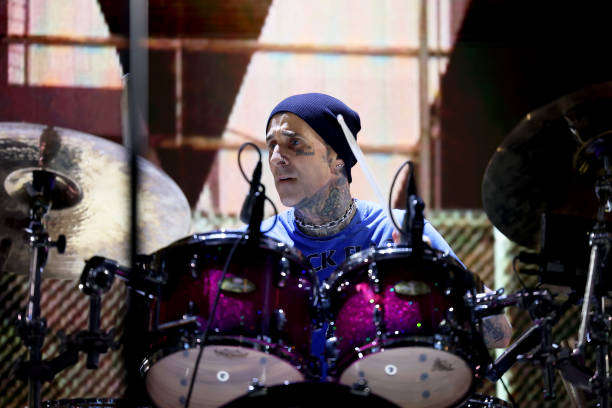
How His Background Shaped His Drumming:
- His experience with wind instruments helped him develop breath control, which aids in endurance drumming.
- His knowledge of melody influenced his ability to craft drum parts that complement the music.
- His versatility allowed him to transition seamlessly between punk rock and hip-hop collaborations.
Lessons from These Drummers’ Journeys
What can aspiring drummers learn from these musicians? Here are a few key takeaways:
- Explore Different Instruments – Learning other instruments enhances overall musicality and can make you a more versatile drummer.
- Apply Melodic Knowledge to Drums – Understanding melody and harmony helps drummers craft more musical, dynamic parts.
- Think Like a Songwriter – Drummers who compose music develop a better sense of structure, timing, and dynamics.
- Experiment with Different Styles – Playing various instruments exposes musicians to new techniques and genres.
FAQs About Drummers Who Started on Other Instruments
1. Can learning another instrument improve drumming skills?
Absolutely! Playing another instrument helps drummers develop a better sense of melody, rhythm, and song composition. It also enhances creativity and musical intuition.
2. Is it common for drummers to switch from other instruments?
Yes, many drummers begin on other instruments before transitioning to drums. Understanding different musical perspectives makes them more well-rounded musicians.
3. How does playing guitar or piano help drummers?
Guitar and piano players develop strong rhythm, timing, and melodic awareness, which can translate into more creative and dynamic drumming.
4. Should aspiring drummers learn another instrument?
Yes! Learning another instrument can enhance musical skills, improve songwriting abilities, and provide a deeper understanding of how different elements of a song interact.
Many of the world’s most famous drummers didn’t start out behind the kit. From guitarists and pianists to trumpet players, these musicians developed their skills on other instruments before discovering their passion for drumming. Their diverse backgrounds shaped their unique styles, influencing the way they approach rhythm, melody, and composition.
For aspiring drummers, this serves as a reminder that Famous Drummers Who Started as Other Musicians explore multiple instruments and that it can be a valuable tool in developing a distinctive and well-rounded drumming style. Whether you start with the piano, guitar, or even a brass instrument, every bit of musical knowledge contributes to your evolution as a drummer.
